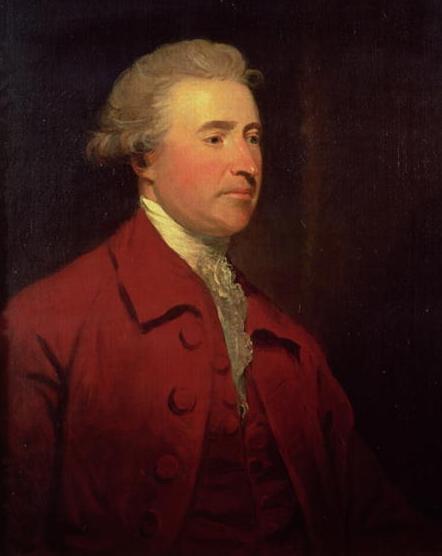
Edmund Burke híres idézetei

Edmund Burke: Idézetek angolul
Introduction On Taste
A Philosophical Enquiry into the Origin of Our Ideas of the Sublime and Beautiful (1757)
Reflections on the Revolution in France (1790)
Part I Section V
A Philosophical Enquiry into the Origin of Our Ideas of the Sublime and Beautiful (1757)
On the Polish Constitution of May 3, 1791
Forrás: An Appeal from the New to the Old Whigs (1791), p. 463
“We must not always judge of the generality of the opinion by the noise of the acclamation.”
No. 1
Letters On a Regicide Peace (1796)
Reflections on the Revolution in France (1790)
Reflections on the Revolution in France (1790)
“Abstract liberty, like other mere abstractions, is not to be found.”
Second Speech on Conciliation with America (1775)
Speech on the Bill for the Relief of Protestant Dissenters (7 March 1773)
1770s
“Whenever a separation is made between liberty and justice, neither, in my opinion, is safe.”
Letter to M. de Menonville (October 1789)
1780s
Reflections on the Revolution in France (1790)
“Slavery they can have anywhere. It is a weed that grows in every soil.”
Second Speech on Conciliation with America (1775)
“Good order is the foundation of all good things.”
Reflections on the Revolution in France (1790)
“No man can mortgage his injustice as a pawn for his fidelity.”
Reflections on the Revolution in France (1790)
“Resolved to die in the last dike of prevarication.”
7 May 1789
On the Impeachment of Warren Hastings (1788-1794)
Reflections on the Revolution in France (1790)
"Thoughts on French Affairs" (December 1791), in Three Memorials on French Affairs (1797), p. 53
1790s
No. 1, p. 172 in The Works of the Right Honourable Edmund Burke: A New Edition, v. VIII. London: F. C. and J. Rivington, 1815
Letters On a Regicide Peace (1796)
Reflections on the Revolution in France (1790)
Volume iii, p. 277
Reflections on the Revolution in France (1790)
“Example is the school of mankind, and they will learn at no other.”
No. 1, volume v, p. 331
Letters On a Regicide Peace (1796)
“Nothing less will content me, than whole America.”
Second Speech on Conciliation with America (1775)
“He was not merely a chip of the old Block, but the old Block itself.”
On Pitt's First Speech (26 February 1781), from Wraxall's Memoirs, First Series, vol. i. p. 342
1780s
Speech on Reform of Representation in the House of Commons (7 May 1782)
1780s
30 May 1794
On the Impeachment of Warren Hastings (1788-1794)
Works of Edmund Burke Volume ii, p. 123
Second Speech on Conciliation with America (1775)
Reflections on the Revolution in France (1790)
“If you can be well without health, you may be happy without virtue.”
First known in Thomas Fuller's Gnomologia: Adages and Proverbs (1732), but not found in the writings of Edmund Burke.
Misattributed
“The arrogance of age must submit to be taught by youth.”
Letter to http://books.google.com/books?id=JsCV9BpMko4C&pg=PA107&dq=%22arrogance+of+age+must+submit+to+be+taught+by+youth%22&hl=en&sa=X&ei=RoPSUs_hA83okQeTz4CQCw&ved=0CC8Q6AEwAA#v=onepage&q=%22arrogance%20of%20age%20must%20submit%20to%20be%20taught%20by%20youth%22&f=false Frances Burney (29 July 1782)
1780s
